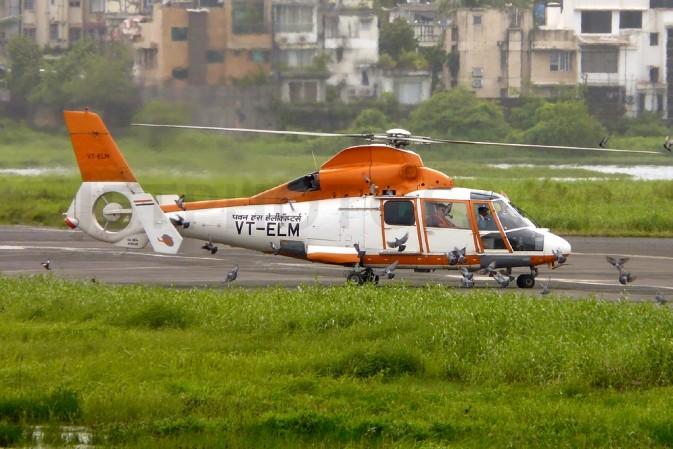
The government's recent failure to divest its stake in Pawan Hans Limited (PHL) is a minor fiasco when compared to the high profile setback with Air India divestment despite hiving off more than half the debt of the national carrier to a special purpose vehicle (SPV). The government failed to receive worthwhile financial bids for the state-sector helicopter operator even after extending the deadline a few times. The government cannot give further extension as the general election process has begun.
Though Finance Minister Arun Jaitley was confident in December last year of finding buyers for PHL, which has a fleet of 41 aircraft apart from servicing six Dhruv helicopters of the Border Security Force (BSF), the market's response has been lukewarm. The government owns 51 per cent in PHL, with the remaining 49 per cent stake owned by state-run ONGC. The government decided on the divestment after its attempt to offload its stake to ONGC failed.
SBI Capital has been advising the government on the bidding process. The divestment process started in April last year when the government issued the information memorandum for the 51 per cent strategic stake sale in PHL and sought expressions of interest (EoI) from bidders by June 18.
Air India (AI) and PHL were among the 35 Central Public Sector Enterprises (CPSE) that the government had identified for divestment to meet the target for the year. The Finance Ministry under Arun Jaitley has renewed the efforts to hasten the sales. The CPSEs on the intended divestment programme have been asked to list the assets and initiate dialogue with potential investors so that their non-core assets can be monetised quickly.
The CPSEs will have the option to either hive-off non-core assets to an SPV or transfer the sale proceeds of non-core assets to an escrow account to ring-fence the realised amount from the rest of the business, a report in the Economic Times said, citing a government official.
![A Pawan Hans helicopter [Representational Image]. Pawan hans helicopter](https://data1.ibtimes.co.in/en/full/579535/pawan-hans-helicopter.jpg?h=450&l=50&t=40)
Among the major public sector enterprises put on the auction block are Air India, Pawan Hans, Bharat Earth Movers Limited (BEML), Scooters India, Bharat Pumps Compressors, and Bhadrawati, Salem and Durgapur units of steel major SAIL, according to the report.
The CPSEs for which approvals for outright sale have been given include Hindustan Fluorocarbon, Hindustan Newsprint, HLL Life Care, Central Electronics, Bridge & Roof India, Nagarnar Steel plant of NMDC and units of Cement Corporation of India and ITDC. The government has asked the CPSEs to improve their housekeeping to ensure better sales returns.
At the time of putting Air India up for divestment, the government created the Air India Assets Holding Ltd (AIAHL), an SPV for presenting cleaner books. The Finance Ministry transferred to SPV Rs 29,000 crore of the nearly Rs 55,000 crore debt that the airline had accumulated. while a government rescue plan including the creation of a special purpose vehicle.
As the government could not find the right investors for offloading its stake and the general election 2019 is underway, the finance ministry has to wait for the new administration to decide on the future of the airline. The airline, which has received capital infusion several times in the past, now needs to repay debts to the tune of Rs 9,0000 crore this fiscal. The government has formed the SPV and transferred a major portion of the debt to it. It also took over about Rs 2,700 crore of the airline's annual interest payment liability out of a total of Rs 4,400 crore. But investors have been keeping away from the airline.
The government plans to present a slimmer entity for divestment after hiving off four subsidiaries – Air India Air Transport Services (AIATSL), Airline Allied Services (AASL), Air India Engineering Services Ltd (AIESL) and Hotel Corporation of India (HCI). The SPV will also take charge of other non-core assets like paintings and artefacts.
PHL and AI as well as Air India Express will be in trouble once the government begins linking budgetary support to the achievement of monetisation targets for CPSEs as proposed.

















